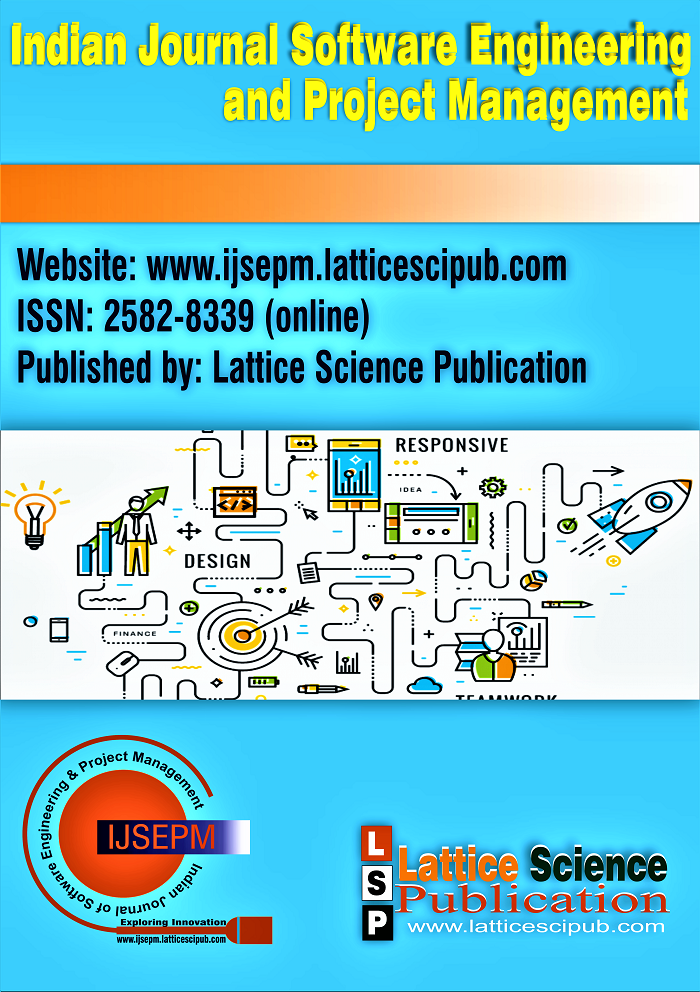A Comparative Study of Different Software Complexity Metrics in Measuring Software Interoperability
Main Article Content
Abstract
Software interoperability is crucial for organizations that rely on multiple software systems to perform their operations. However, due to the complexity and variety of software systems, ensuring interoperability can be difficult. Measuring software complexity metrics can be used to identify potential problems and assess how well different interoperability strategies work. In this study, we investigated and compared the effectiveness of different software complexity metrics in measuring software interoperability. We used statistical methods to analyze data collected from a sample of software systems. The results of our study show that certain metrics, such as coupling and cohesion, are more effective than others in measuring software interoperability. By selecting appropriate metrics, developers can ensure better productivity, lower costs, and more adaptable use of software systems. The findings of this study have implications for the creation of software and can guide businesses in choosing the right criteria to achieve software interoperability.
Downloads
Article Details

This work is licensed under a Creative Commons Attribution-NonCommercial-NoDerivatives 4.0 International License.
How to Cite
References
Kim, J. (2019). Interoperability in software engineering: A systematic review. Information and Software Technology, 106, 1-17. doi: 10.1016/j.infsof.2018.09.004 https://doi.org/10.1016/j.infsof.2018.09.004
Satyanarayanan, M. (2018). Interoperability: What it is and why it matters. Communications of the ACM, 61(10), 29-31. doi: 10.1145/3267300
W3C. (n.d.). World Wide Web Consortium. Retrieved, [Online] Available : https://www.w3.org/
OGC. (n.d.). Open Geospatial Consortium. Retrieved, [Online] Available: https://www.ogc.org/
OMG. (n.d.). Object Management Group. Retrieved, [Online] Available: https://www.omg.org/
Shepperd, M., & Kadoda, G. (2002). Measuring software complexity: a case study in interoperability. Journal of Systems and Software, 60(1), 23-32. doi: 10.1016/s0164-1212(01)00174-1.
Chang, C. K., & Yeh, Y. S. (2010). Comparing software complexity metrics for measuring software interoperability. Journal of Systems and Software, 83(3), 390-401. doi: 10.1016/j.jss.2009.09.033. https://doi.org/10.1016/j.jss.2009.09.033
Oussalah, M., & Boufaïda, Z. (2014). Software complexity metrics for measuring software interoperability: a comparative study. Procedia Computer Science, 32, 1024-1031. https://doi.org/10.1016/j.procs.2014.05.459
Chang, C. K., & Yeh, Y. S. (2010). Comparing software complexity metrics for measuring software interoperability. Journal of Systems and Software, 83(3), 390-401. https://doi.org/10.1016/j.jss.2009.09.033
Oussalah, M., & Boufaïda, Z. (2014). Software complexity metrics for measuring software interoperability: a comparative study. Procedia Computer Science, 32, 1024-1031. https://doi.org/10.1016/j.procs.2014.05.459
Chang, C. K., & Yeh, C. W. (2010). The comparison of software complexity metrics for measuring software interoperability. Journal of Systems and Software, 83(6), 962-971. doi: 10.1016/j.jss.2009.11.778
Oussalah, M., & Boufaïda, Z. (2014). Measuring software interoperability based on software complexity metrics: A comparative study. Journal of Software: Evolution and Process, 26(8), 745-761. https://doi.org/10.1002/smr.1601
Babu, G. V. S., & Menon, R. (2018). A comparative study of software complexity metrics for measuring interoperability of software systems. In 2018 3rd International Conference on Computational Systems and Information Technology for Sustainable Solution (CSITSS) (pp. 7-11). IEEE. doi: 10.1109/CSITSS.2018.8539826
Bhardwaj, N., & Singh, R. (2019). A comparative study of software complexity metrics in measuring interoperability of software systems. In 2019 5th International Conference on Computing Sciences (ICCS) (pp. 1-6). IEEE. doi: 10.1109/ICCS46853.2019.8988061
Apache Hadoop website [Online] Available : https://hadoop.apache.org/
Kreps, J., Narkhede, N., & Rao, J. (2011). Kafka: A distributed messaging system for log processing. In Proceedings of the NetDB (Vol. 11, pp. 1-7)
Toshniwal, A., Taneja, S., Shukla, A., Ramasamy, K., Patel, J. M., Kulkarni, S. R., ... & Murthy, R. (2014, October).
Abadi, M., Barham, P., Chen, J., Chen, Z., Davis, A., Dean, J., ... & Kudlur, M. (2016). TensorFlow: A system for large-scale machine learning. In 12th USENIX Symposium on Operating Systems Design and Implementation (OSDI 16) (pp. 265-283).
Paszke, A., Gross, S., Chintala, S., Chanan, G., Yang, E., DeVito, Z., ... & Lerer, A. (2017). Automatic differentiation in PyTorch. In NIPS-W (pp. 1-4).
Babu, G. V. S., & Menon, R. (2018). A comparative study of software complexity metrics for measuring interoperability of software systems. In 2018 3rd International Conference on Computational Systems and Information Technology for Sustainable Solution (CSITSS) (pp. 7-11). IEEE. doi: 10.1109/CSITSS.2018.8539826
Chang, C. K., & Yeh, C. W. (2010). The comparison of software complexity metrics for measuring software interoperability. Journal of Systems and Software, 83(6), 962-971. doi: 10.1016/j.jss.2009.11.778
Walia, G., & Kaur, A. (2019). A systematic review on software complexity metrics. Journal of Systems and Software, 157, 110406. doi: 10.1016/j.jss.2019.11040





